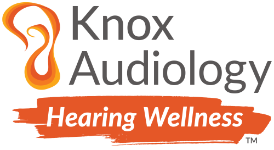Understanding Auditory Processing Disorder: A Comprehensive Guide for Parents

Auditory Processing Disorder (APD) affects the way the ears and brain work together to understand sound. With an estimated prevalence of 2-5% among school-age children, APD is often misunderstood and misdiagnosed due to its overlapping symptoms with other developmental concerns such as attention deficits hyperactive disorder (ADHD), dyslexia, and autism spectrum disorder (ASD).
Understanding the signs, symptoms, and diagnosis pathways for APD is essential for parents, educators, and anyone seeking a comprehensive guide to navigate the challenges posed by this disorder.
APD and Hearing
Auditory processing (AP) is the ability to recognise and interpret both linguistic and non-linguistic sounds. APD occurs when there is a disruption or difficulty in the way the brain processes and makes sense of this auditory information.
Individuals with APD may experience challenges in various aspects of auditory comprehension, such as discerning speech in noisy environments, following verbal instructions, and distinguishing subtle differences in sounds. Although children with APD may have normal hearing, they face challenges in recognising and comprehending the sounds around them. This difficulty extends to discerning the origin, timing, and nature of sounds, making it particularly challenging in noisy environments.
The Pathway to Hearing
Sound enters the ear via a auditory stimulus, passing through the outer, middle, and inner ear. Once it reaches the hearing organ in the inner ear (cochlea), the information travels up the brainstem (dorsal cochlear complex and superior olivary complex), through the lateral lemniscus, into the midbrain (inferior colliculus) where it enters the auditory cortex via the medial geniculate body. The cortex is where the sounds become meaning and higher level of cognition is required for activities such as reading and writing.
Types of APD
If any step of the pathway is not functioning properly, the person’s ability to process sound may be hindered. Auditory processing disorder can be categorised into 3 groups: developmental, secondary, and acquired.
- Developmental auditory processing disorder is the most common form of APD. It describes a person with normal hearing but has been unable to develop appropriate auditory processing abilities. This most often starts in children but can persist until adulthood if left untreated.
- Secondary auditory processing disorder is when difficulty stems from a hearing loss. This includes children with middle ear diseases such as recurrent ear infections or congenital hearing losses, where their inability to hear speech sounds exacerbates their processing skills.
- Acquired auditory processing can be caused by other medical conditions or ageing. Auditory processing is highly correlated with cognitive function. Cases of neurological brain damage have been linked to auditory processing concerns after.
Types of processing abilities
Jack Katz’s Buffalo Model categorises the auditory processing abilities into four domains: decoding, tolerance-fading memory, organisation, and integration.
- Decoding encompasses the ability to quickly and accurately recognise speech and nonspeech sounds. Difficulties in this area may present as unclear or slow speech, spelling concerns, problems with understanding language and inability to follow verbal instructions.
- Tolerance-fading memory describes how people understand or tolerate speech in background noise whilst using their short-term memory. Symptoms may present as difficulty with remembering verbal instructions, impulsivity or quick responses, often interrupting others, and easily distracted by noise.
- Organisation denotes the ability to maintain a proper sequence and order of information. Sometimes difficulty with sequencing verbal items can reflect the person’s lifestyle, such as having a messy room or often losing their belongings. They tend to have difficulty keeping things organised.
- Integration means combining information across the different processing centres to bring all the information together, including auditory and visual cues. This is the most complex domain of APD. Concerns may arise in this area due to poor handwriting, a dyslexia diagnosis or significant reading and spelling problems, or struggling with visual processing.
APD Diagnosis
Only audiologists who specialise in auditory processing can diagnose auditory processing disorders. There are many qualitative and quantitative tests which examine the auditory processing pathway and can provide us with a diagnosis when appropriate. At Knox Audiology, we have expanded our APD test battery to include ages 3.5 years and above.
Following Jack Katz’s Buffalo Model, we have implemented the Central Test Battery for ages 7 and above, evaluating the four domains of auditory processing.
For our younger patients (ages 5-7), we offer Acoustic Pioneer’s Feather Squadron, an iPad-based auditory processing assessment which examines a wide range of skillsets including localisation, temporal processing, dichotic listening, linguistic and non-linguistic processing and memory, degraded speech, and speech discrimination in noise.
Patients aged 4 and under can undergo testing with more visual cues. This may involve the Auditory Skills Assessment and the Phonemic Synthesis Picture Test, which allows us to observe the child’s decoding ability and short-term memory through speech discrimination and phonemic synthesis.
Available Therapies, Devices, and Strategies
There are currently both in-person and digital therapies available to train the brain and improve one’s auditory processing abilities. Health professionals such as audiologists, speech pathologists, and educational psychologists who specialise in auditory processing disorders can provide the necessary information and therapy to improve the patient’s auditory processing ability. At Knox Audiology, our audiologists provide weekly sessions in the clinic on a one-to-one basis where we cater the therapy according to the patient’s specific auditory processing concerns.
Parents and guardians can also assist their child’s auditory processing training at home via digital therapies on a compatible iPad or Android tablet. Alternative options for children may include: Acoustic Pioneer’s Zoo Caper Sky Scraper for dichotic listening skills; Acoustic Pioneer’s Insane Earplane for tonal processing skills; and Sound Storm for spatial discrimination and sound localisation.
When applicable, if the patient presents with a hearing loss, hearing aids may be beneficial to lessen the listening effort. This in turn can allow the patient to focus more of their energy understanding speech, especially in a loud environment.
Assistive listening devices (ALDs) such as a Phonak Roger wireless microphone system help to improve listening ability over distance and in the presence of background noise. The system consists of a receiver and a transmitter. The transmitter is worn by the speaker (e.g. teacher), and the receiver is worn by the listener (e.g. student). Having the voice of the speaker stream directly into the listener’s ears will help increase the speech to noise ratio, allowing people to hear better especially in a noisy environment.
Environmental modifications can be applied particularly in a classroom setting for better listening. The signal to noise ratio can also be increased by rearranging the seats in the classroom, modifying the acoustics of the room or reducing extraneous noises in the classroom. Reducing reverberation (sound reflection and volume) and relocating noise sources can be achieved by adding carpet to the floors and walls, using softer materials for furniture, and creating a smaller room space.
At Knox Audiology, we take pride in our team of university qualified and experienced audiologists, who are committed to providing trusted, friendly, and professional hearing services, catering to all your unique hearing needs. Our comprehensive and diagnostic hearing tests are designed to understand and address your specific concerns, ensuring the best possible outcomes.
For more information regarding APD testing and therapy, call 03 9800 5697 or contact us here.
For any support, please reach out to us call 03 9800 5697 or contact us online.
